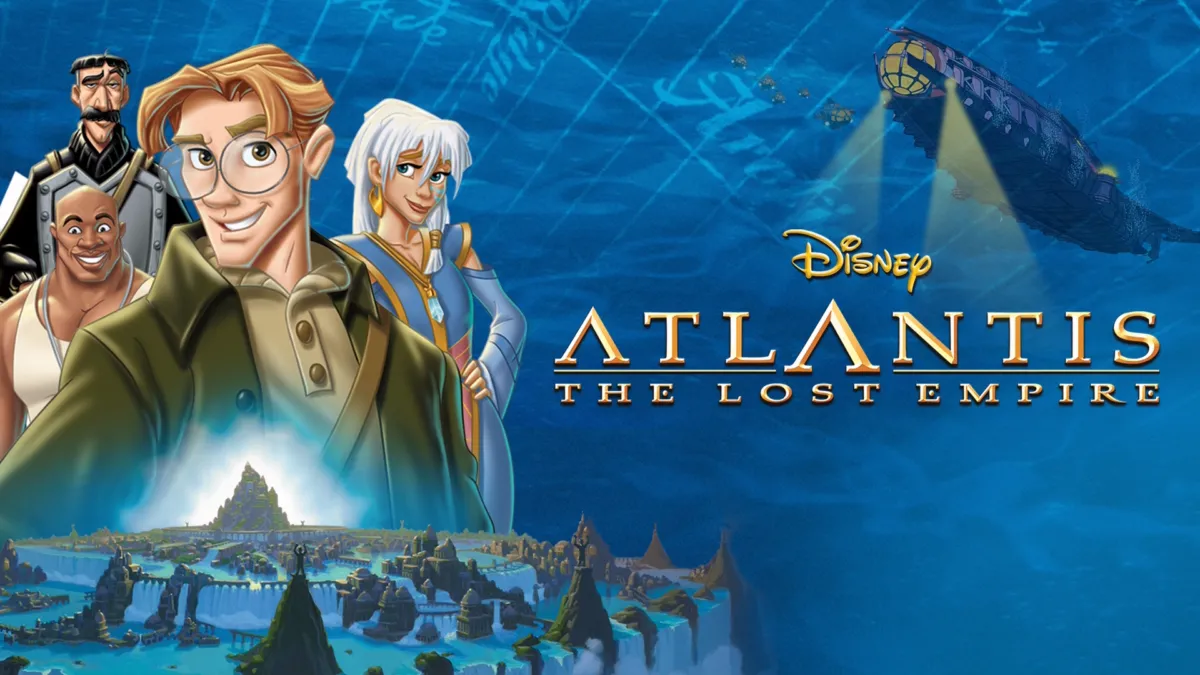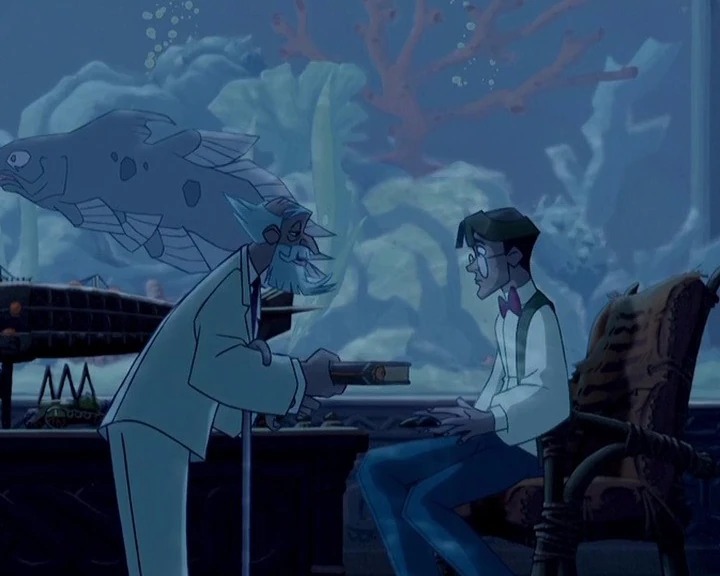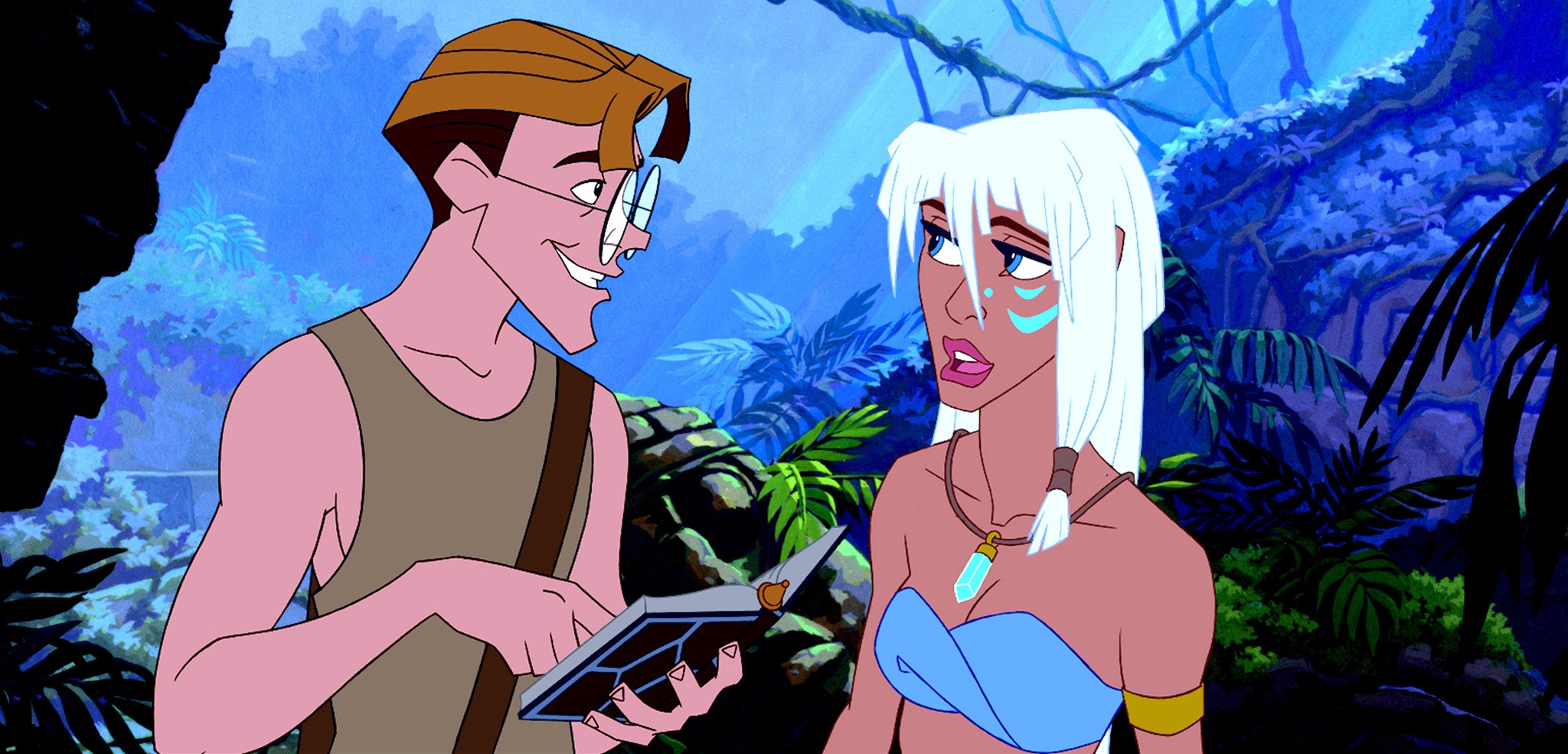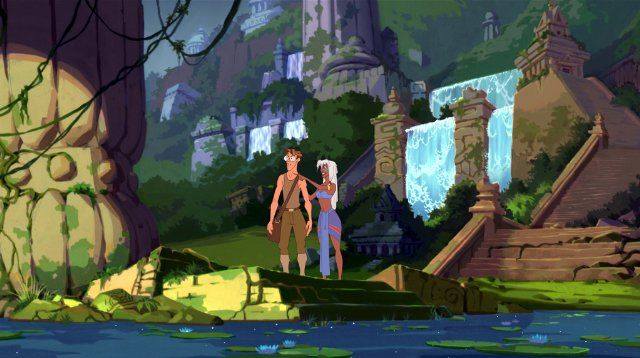Atlantis: The Lost Empire (2001)

Atlantis: The Lost Empire (2001) is the 41st animated film from Walt Disney Animation Studios, and it marks the studio’s first venture into the genre of science fiction. Directed by Gary Trousdale and Kirk Wise, the film combines thrilling action with an adventurous spirit, taking audiences on an unforgettable journey to the mythical lost city of Atlantis. The movie features a talented voice cast, including Michael J. Fox, James Garner, and Leonard Nimoy, and it explores themes of exploration, discovery, and the clash between ancient knowledge and modern technology. Atlantis stands out in Disney’s catalog for its unique visual style and the more mature themes it tackles.
The story follows Milo Thatch (voiced by Michael J. Fox), a young and idealistic linguist and cartographer who is determined to prove the existence of Atlantis, the legendary lost city. After discovering an ancient journal and map, Milo is recruited by a wealthy benefactor, Preston Whitmore, to join an expedition to find Atlantis. The team, which includes a diverse group of explorers and adventurers, travels deep into the ocean and uncovers the hidden city, where they discover not only advanced technology but also an ancient civilization that has been lost for centuries. As the team explores Atlantis, they uncover secrets that challenge their understanding of history and their own moral values.
What sets Atlantis: The Lost Empire apart from other Disney animated films is its unique visual style. The film’s animation is influenced by the art of graphic novels and steampunk, with sharp lines, dark colors, and a more mature, adventurous tone. The design of Atlantis itself is both awe-inspiring and haunting, with its ancient technology, vast underground landscapes, and intricate architecture. The futuristic, otherworldly look of the city is complemented by a rich musical score composed by James Newton Howard, which enhances the sense of mystery and adventure throughout the film.

The film’s characters, especially Milo Thatch, are integral to the story’s emotional depth. Milo is portrayed as an intelligent but somewhat naïve young man, whose enthusiasm and determination are what drive the narrative forward. His relationships with the other characters, particularly with Kida (voiced by Cree Summer), the princess of Atlantis, form the emotional core of the story. Kida is a strong and resourceful character, and her interactions with Milo reveal the contrast between the ancient wisdom of Atlantis and the modern world. The diverse supporting cast, including the gruff Commander Rourke (voiced by James Garner) and the quirky Dr. Sweet (voiced by Phil Morris), each bring their own unique personality to the adventure, helping to build a sense of camaraderie and conflict among the team.

Atlantis: The Lost Empire also explores deeper themes of exploration, greed, and the consequences of unchecked ambition. The team’s discovery of Atlantis is not just a triumph of exploration, but also a confrontation with the ethical dilemmas that arise when they uncover the city’s powerful technology. The film touches on the tension between preserving ancient cultures and exploiting them for personal gain, especially as the villainous Commander Rourke plans to exploit Atlantis’ resources for profit. The film challenges the audience to reflect on the moral implications of their actions, especially in the context of scientific discovery and technological advancement.

In conclusion, Atlantis: The Lost Empire (2001) is an exciting and visually striking animated film that stands out in Disney’s extensive catalog. Its unique blend of science fiction, adventure, and mythological storytelling offers an engaging experience for both young and adult audiences. The film’s animation style, mature themes, and well-developed characters make it a standout in Disney’s body of work, and it remains a cult favorite for many fans of animated adventure films. Atlantis is a testament to the power of storytelling, reminding us of the excitement of exploration and the mysteries that still lie beneath the surface of our world.











